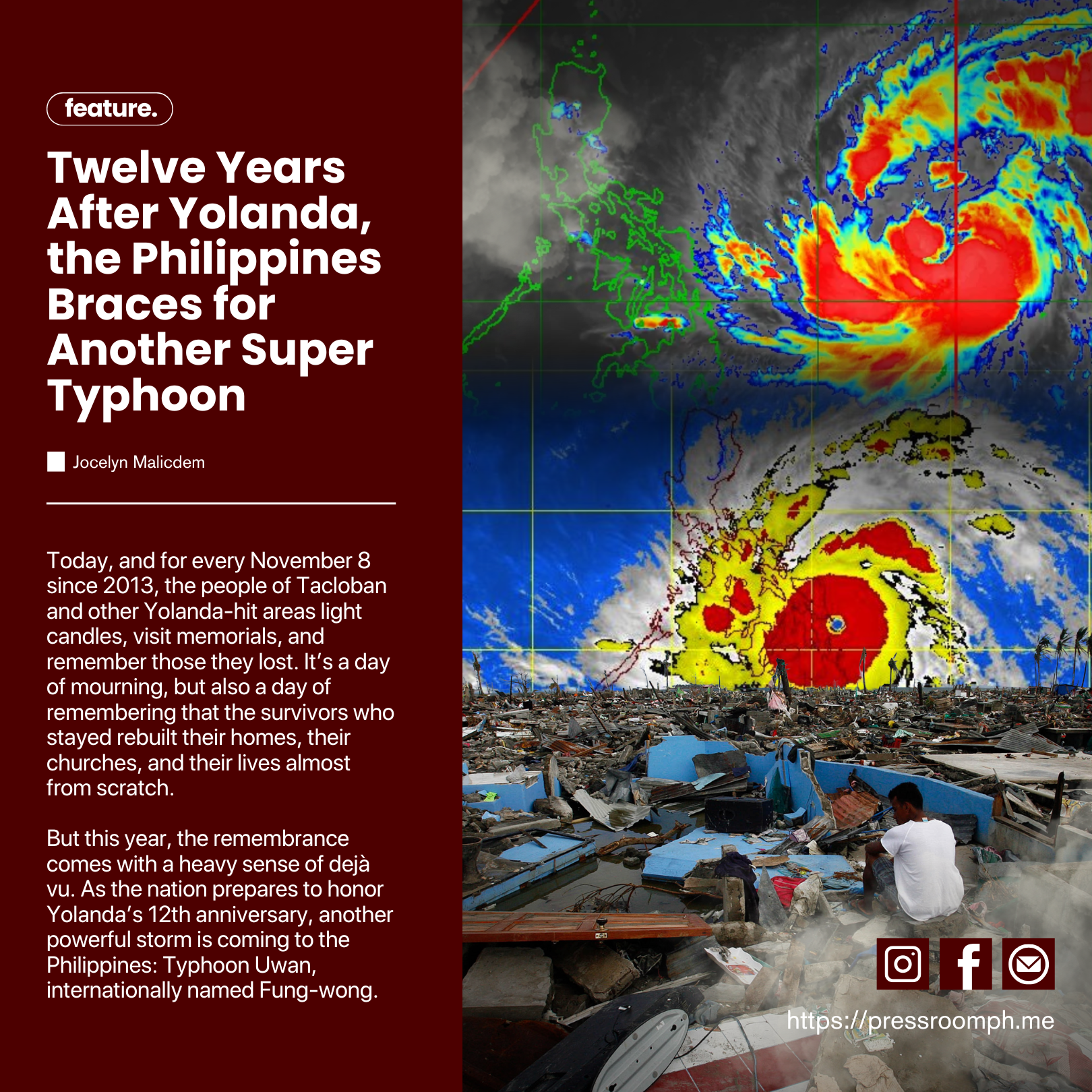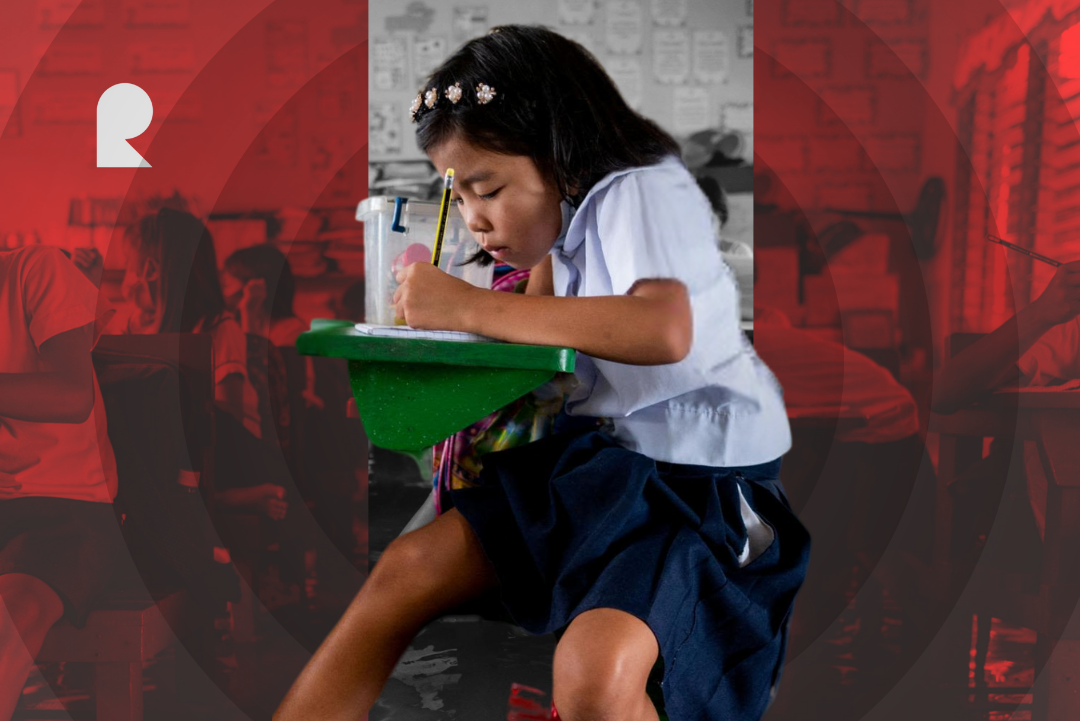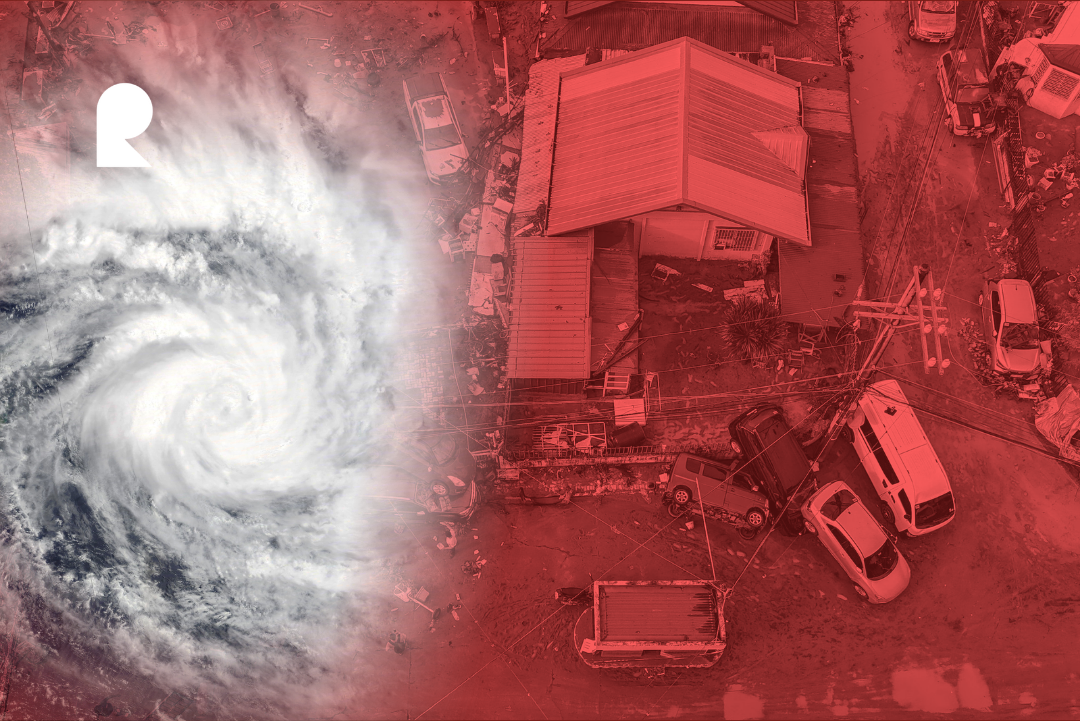Twelve years ago, on November 8, 2013, the world watched in horror as one of the strongest typhoons ever recorded slammed into the Philippines. Typhoon Yolanda, internationally known as Haiyan, brought with it winds that roared past 300 kilometers per hour and storm surges that swallowed entire coastal towns.
In just a few hours, Yolanda changed countless lives. Houses were torn apart. Streets were littered with debris. Ships were hurled inland like toys. Families were separated in the chaos, and thousands never made it home. The official death toll reached over 6,000, but survivors say the true number may never be known.
In the days that followed, silence fell over the ruins. There was no electricity, no clean water, and little food. People searched through the wreckage for loved ones. The smell of seawater mixed with grief filled the air.
Today, and for every November 8 since 2013, the people of Tacloban and other Yolanda-hit areas light candles, visit memorials, and remember those they lost. It’s a day of mourning, but also a day of remembering that the survivors who stayed rebuilt their homes, their churches, and their lives almost from scratch.
But this year, the remembrance comes with a heavy sense of dejà vu. As the nation prepares to honor Yolanda’s 12th anniversary, another powerful storm is coming to the Philippines: Typhoon Uwan, internationally named Fung-wong.
According to PAGASA, Uwan is moving closer to the country and is expected to enter the Philippine Area of Responsibility (PAR) on November 7 or early Saturday, November 8. It currently packs maximum sustained winds of around 95 kilometers per hour, with gusts reaching up to 115 kph. It could intensify further into a super typhoon as it approaches Northern Luzon.
Meteorologists warn that Uwan has a wide wind field, capable of bringing strong winds, intense rains, and possible storm surges, especially in coastal areas. PAGASA has urged residents to stay alert and prepare for potential flooding and landslides.
It’s a haunting coincidence: on the very same day that Filipinos look back on Yolanda’s devastation, the country once again faces the approach of another potentially destructive storm.
If the disasters the Philippines had gone through taught the nation anything, it’s that preparedness saves lives. The tragedy revealed how crucial early warnings, strong evacuation systems, and community awareness are in the face of disaster. Preparedness is more than just waiting for the disaster; it’s about acting before it strikes, ensuring that every family knows where to go and whom to trust.
As we honor the victims of Yolanda and other deadly typhoons, we owe it to them to demand justice for the corruption in flood control projects. The money they stole could have built stronger flood control projects, safer homes, and saved countless lives. As we face another storm like Uwan, may Yolanda’s memory remind us: never again should greed be deadlier than the typhoon itself.
| via Jocelyn Malicdem




